Search

ORIGINS is celebrating a substantial funding increase for its world-class research into child and family health and wellbeing.
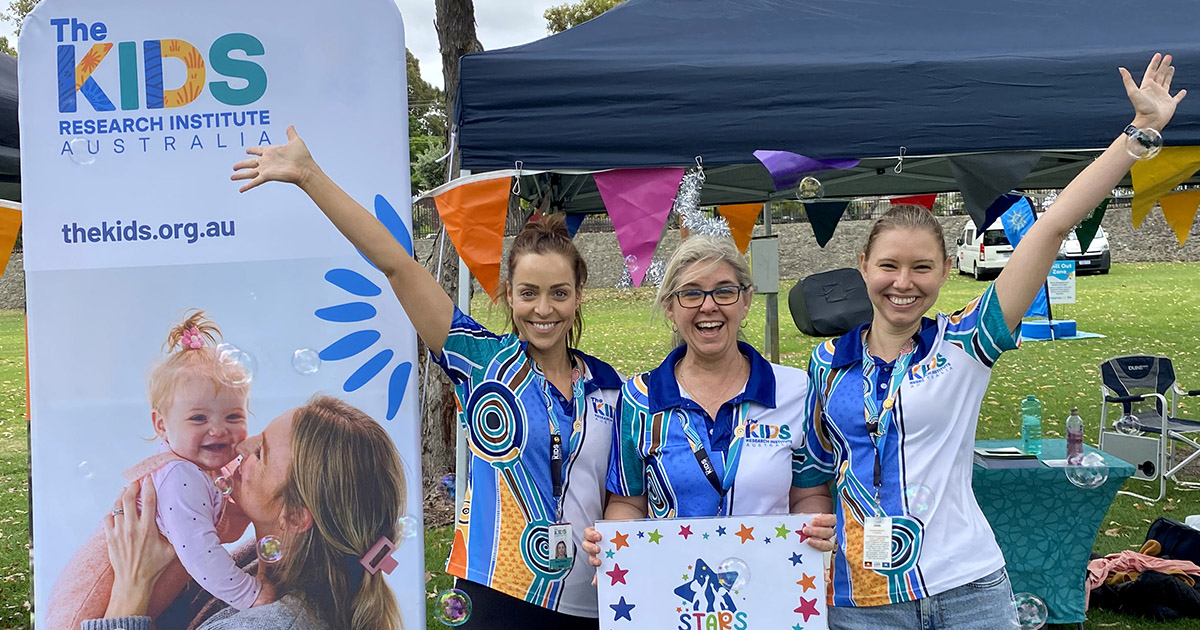
STARS for Kids, a sub-project of ORIGINS, received a three-year grant to advance the development of a scalable, online, tiered model of care to better support disadvantaged communities, where 20-25 per cent of children are entering school developmentally vulnerable.
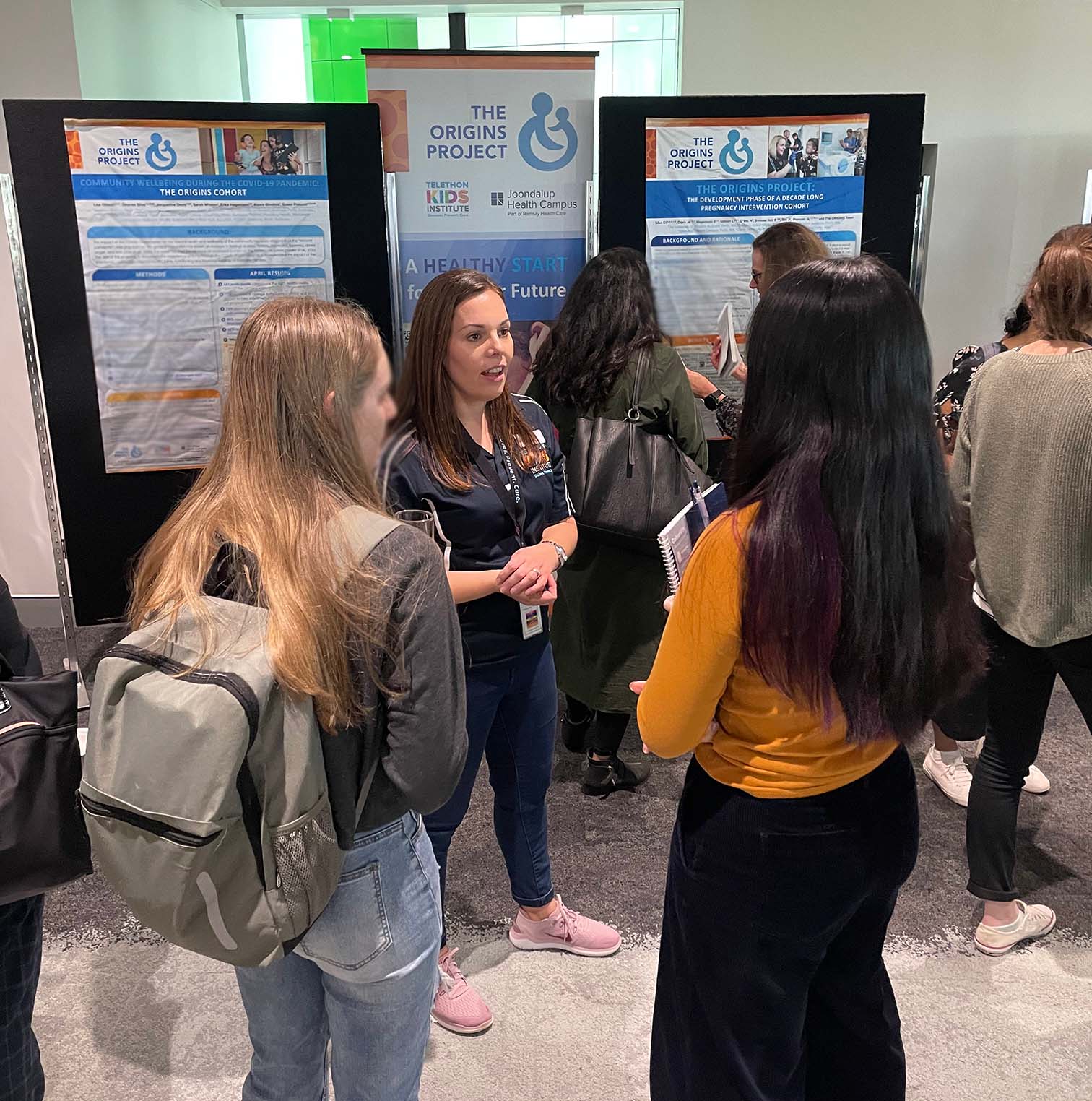
Students met ORIGINS team at the recent Prospective Student Evening at Telethon Kids Institute.
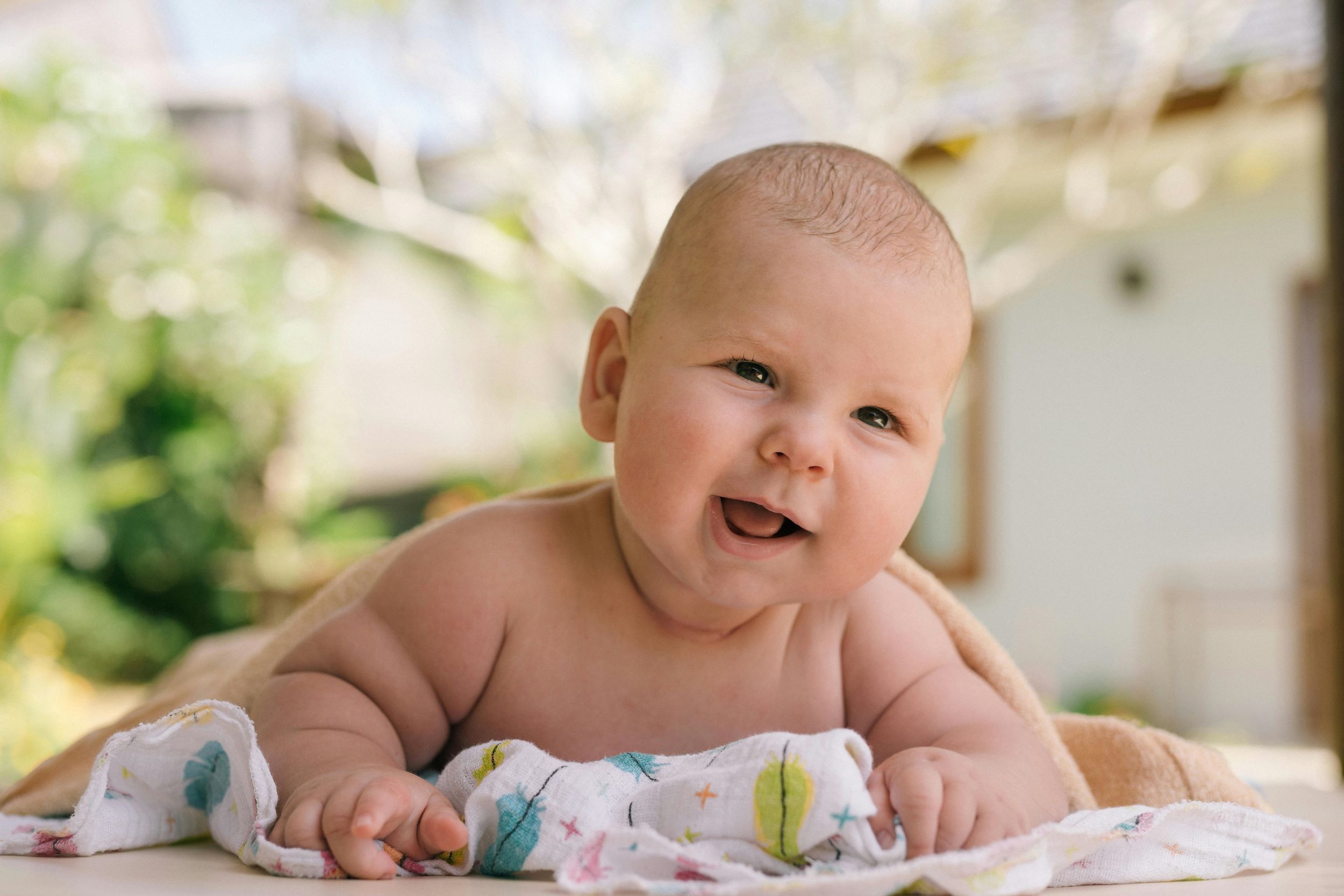
Determining the associations of sun exposure in early life on the development of non-communicable diseases.
The ORIGINS Project (“ORIGINS”) is a longitudinal, population-level birth cohort with data and biosample collections that aim to facilitate research to reduce non-communicable diseases and encourage ‘a healthy start to life’. ORIGINS has gathered millions of datapoints and over 400,000 biosamples over 15 timepoints, antenatally through to five years of age, from mothers, non-birthing partners and the child, across four health and wellness domains.

This research domain focuses on understanding how early biological and physical factors shape infant growth, body composition, and neurodevelopment from the earliest stages of life.
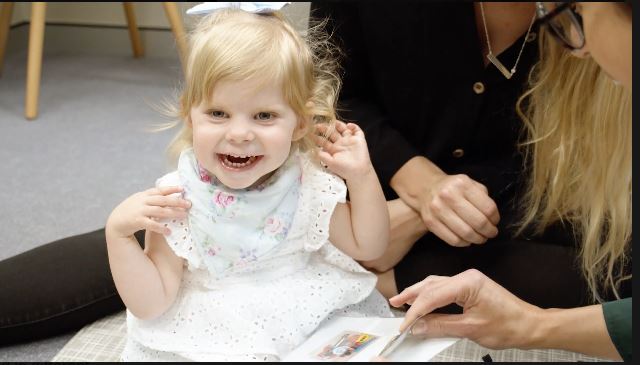
Communicating with and Understanding your Baby
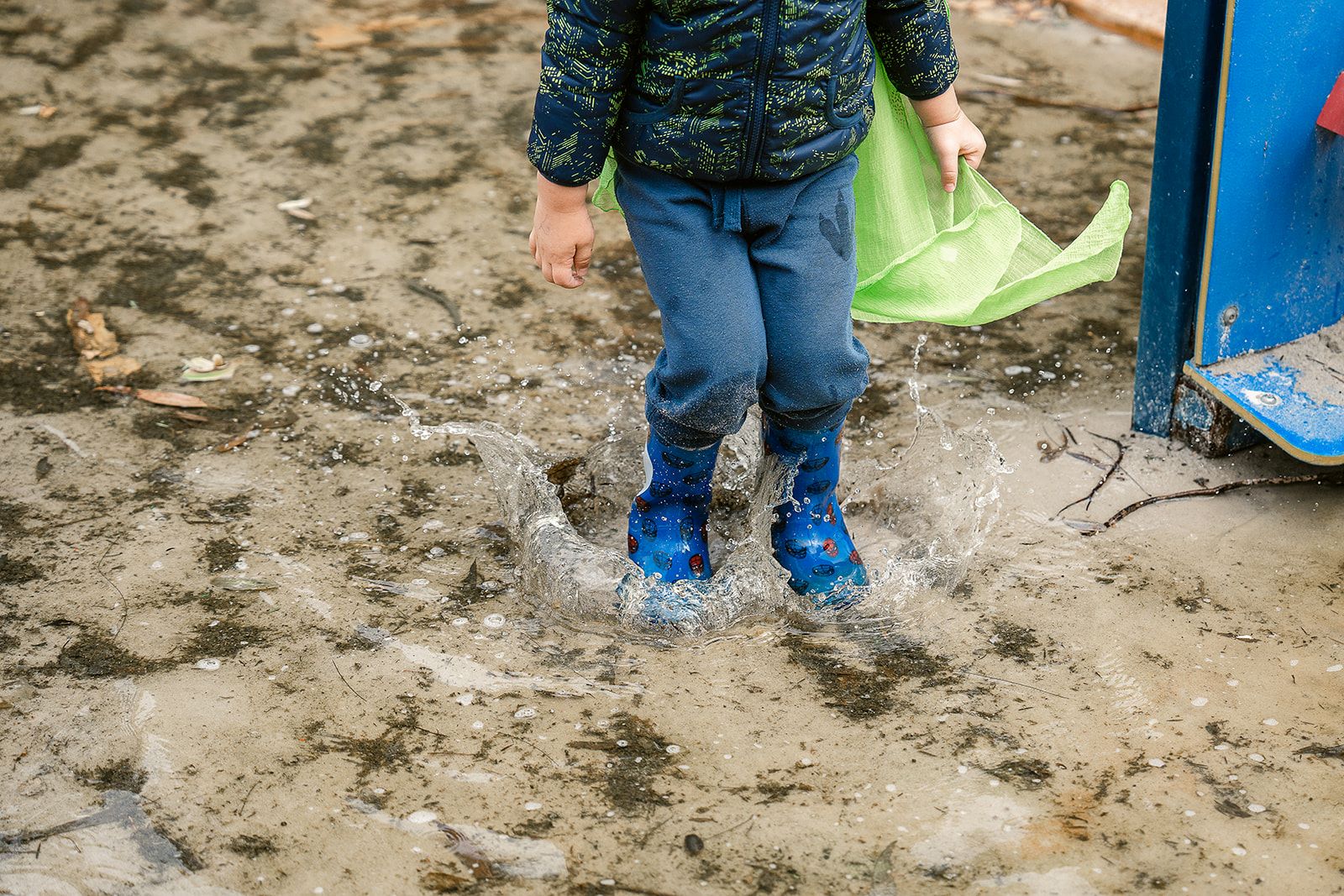
Helping families to unlock the mental and physical health benefits of connecting with nature and community through outdoor play - easily, and locally.

ORIGINS sub-projects are investigating the best way to provide support to new parents and positively influence the health and development of their children.
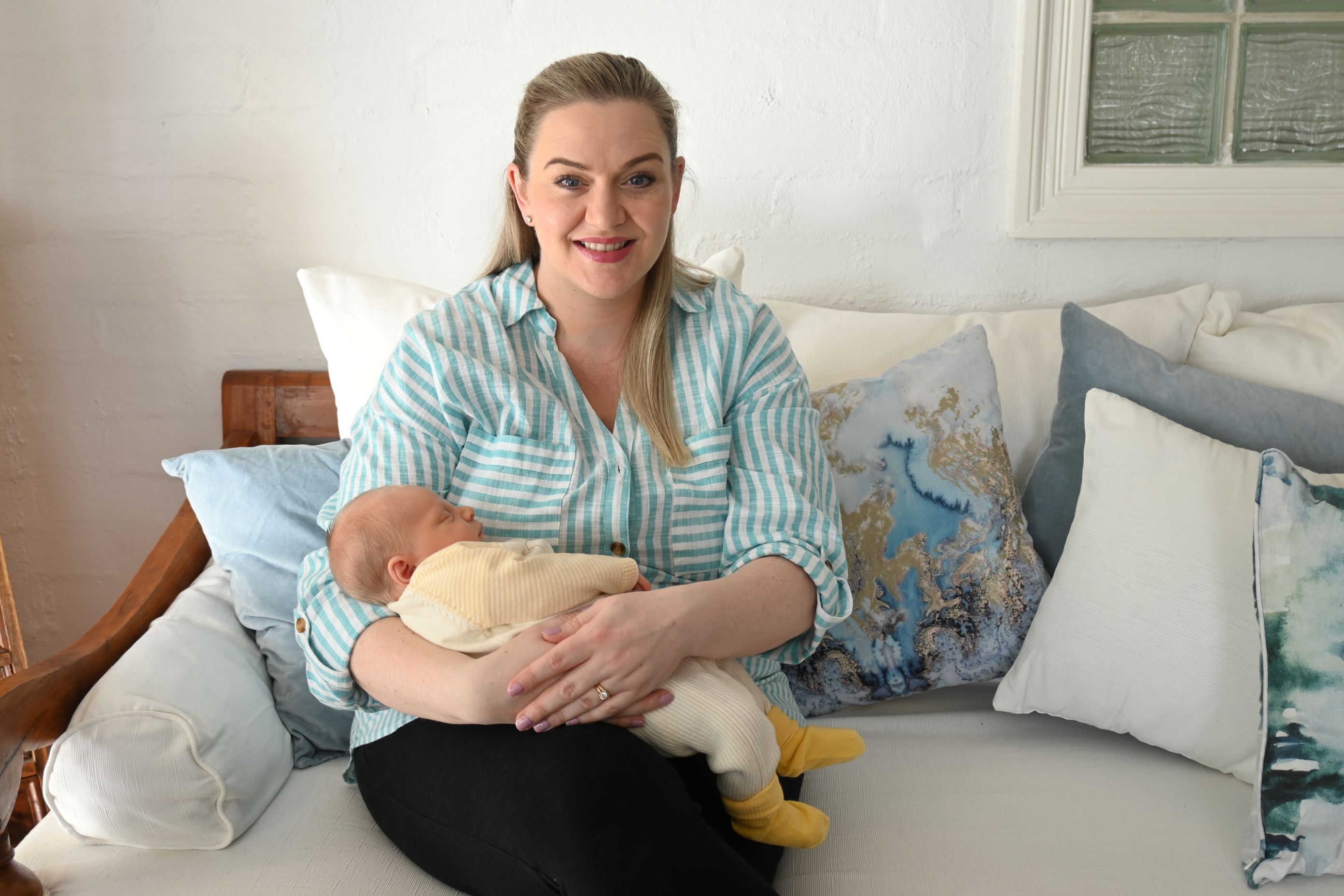
ORIGINS has welcomed its very last baby into the cohort
